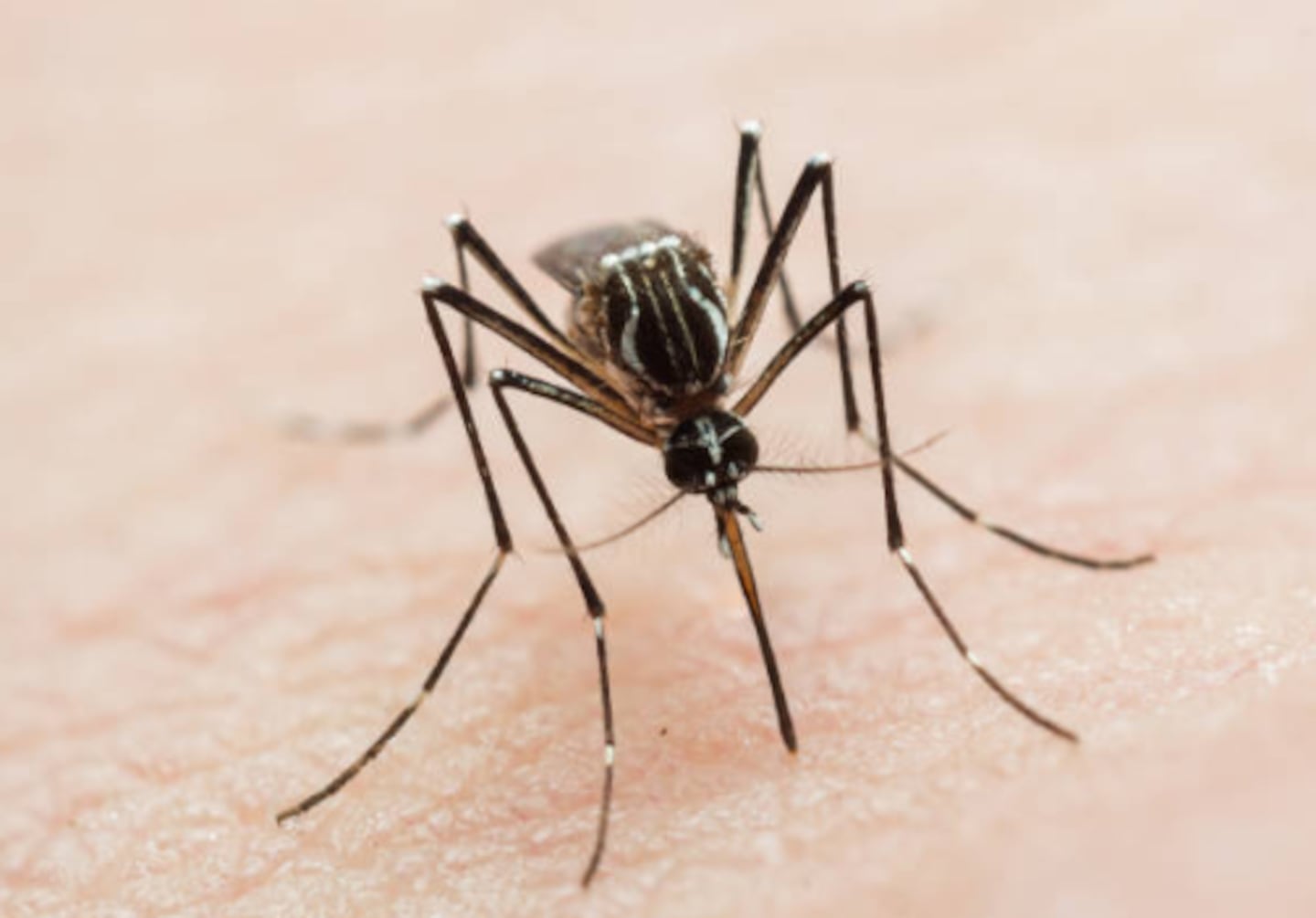BOSTON — A fourth person in Massachusetts has come down with Eastern equine encephalitis, or EEE, as several communities statewide remain at high risk for the disease that is spread by mosquitoes, state health officials said Monday.
The latest case is a man in his 50s who was exposed in an area in Middlesex County, which is high risk for the virus, state Public Health Commissioner Dr. Robbie Goldstein said in a statement.
“This year’s EEE season has been particularly active and is generating a lot of concern in communities across Massachusetts,” Goldstein said. “While EEE remains a rare disease, the risk level is elevated in multiple communities. With the weather forecast showing warm, sunny weather for the rest of the week, we recommend that people take necessary precautions in areas of elevated risk.”
Goldstein recommended that residents who live in towns at high risk for EEE “reschedule their evening outdoor events to avoid peak mosquito biting hours from dusk to dawn.”
There have been 91 EEE-positive mosquito samples in Massachusetts this year.
While most activity has been focused in Plymouth and Worcester counties, infected mosquitoes have also been found in Bristol, Essex, and Middlesex counties, officials said.
EEE is transmitted to humans through the bite of an infected mosquito. The last outbreak of EEE in Massachusetts occurred in 2019 to 2020 and resulted in 17 human cases with seven deaths. In addition to this year’s four human cases, EEE has also been identified in two horses in Massachusetts.
State health officials on Tuesday elevated risk levels for West Nile virus in several Massachusetts communities after two more people have come down with that disease.
To date, six human cases of West Nile virus have been recorded in Massachusetts this year, officials said. No animal cases of West Nile virus have been detected this year.
As a result, West Nile virus risk levels in the following area communities were raised to high: Saugus in Essex County; Arlington, Belmont, Malden, Medford, and Melrose in Middlesex County; and Chelsea, Revere, and Winthrop in Suffolk County.
News of the additional human cases of EEE and West Nile virus in Massachusetts came as the region is grappling with mosquito-born viruses that can turn deadly.
In New Hampshire, 41-year-old Steven Perry died on Aug. 19, one week after being hospitalized for severe central nervous system disease after coming down with the EEE virus, state health officials said in late August.
In Massachusetts, public health officials on Aug. 29 confirmed a second human case of Eastern Equine Encephalitis, or EEE, this year as well as a second confirmed case in a horse.
Ten communities in Plymouth and Worcester counties were raised to high or critical risk for EEE after state health officials announced in mid-August that a man in his 80s had caught the disease, the first human case found in Massachusetts since 2020. In Oxford, town officials approved a recent curfew due to EEE risk.
In Plymouth, town officials said that all public parks and fields will be closed daily from dusk until dawn in response to the town’s high-risk status.
Massachusetts will start mosquito spraying amid critical risk for rare but deadly virus
Local and state officials shared the following tips to help prevent mosquito bites and the transmission of West Nile Virus and EEE:
Avoid mosquito bites and be aware of peak mosquito hours. The hours from dusk to dawn are peak biting times for many mosquitoes. Consider rescheduling outdoor activities that occur during the evening, after 6 p.m. or early morning. Otherwise, take extra care to use repellent and protective clothing. Mosquitoes can be active during daylight hours when the temperatures are cool.
Clothing can help reduce mosquito bites. Although it may be difficult to do when it is hot, wearing long sleeves, long pants and socks when outdoors will help keep mosquitoes away from your skin.
Apply insect repellent when you go outdoors. Use a repellent with DEET (N, N-diethyl-m-toluamide), permethrin, picaridin (KBR 3023) or oil of lemon eucalyptus [p-methane 3, 8-diol (PMD)] according to the instructions on the product label. DEET products should not be used on infants younger than 2 months of age and should be used in concentrations of 30 percent or less on older children. Oil of lemon eucalyptus should not be used on children younger than 3 years of age.
Mosquito-proof your Home and drain standing water. Mosquitoes lay their eggs in standing water. Limit the number of places around your home for mosquitoes to breed by either draining or getting rid of items that hold water. Check rain gutters and drains. Empty any unused flowerpots and wading pools, and change water in birdbaths frequently.
Install or repair screens. Some mosquitoes like to come indoors. Keep them outside by having tightly fitted screens on all windows and doors.
Protect your animals. Animal owners should reduce potential mosquito breeding sites on their property by eliminating standing water from containers such as buckets, tires, and wading pools – especially after heavy rains.
Water troughs provide excellent mosquito breeding habitats and should be flushed out at least once a week during the summer months to reduce mosquitoes near paddock areas. Horse owners should keep horses in indoor stalls at night to reduce their risk of exposure to mosquitoes. Owners should also speak with their veterinarian about mosquito repellents approved for use in animals and vaccinations to prevent WNV and EEE.
If an animal is suspected of having West Nile Virus or EEE, owners are required to report to the Department of Agricultural Resources, Division of Animal Health by calling 617-626-1795, and to the Department of Public Health by calling 617- 983-6800.
More information, including all West Nile Virus- and EEE-positive results can be found at this website or by calling the DPH Division of Epidemiology at 617-983-6800.
This is a developing story. Check back for updates as more information becomes available.
Download the FREE Boston 25 News app for breaking news alerts.
Follow Boston 25 News on Facebook and Twitter. | Watch Boston 25 News NOW
©2024 Cox Media Group









